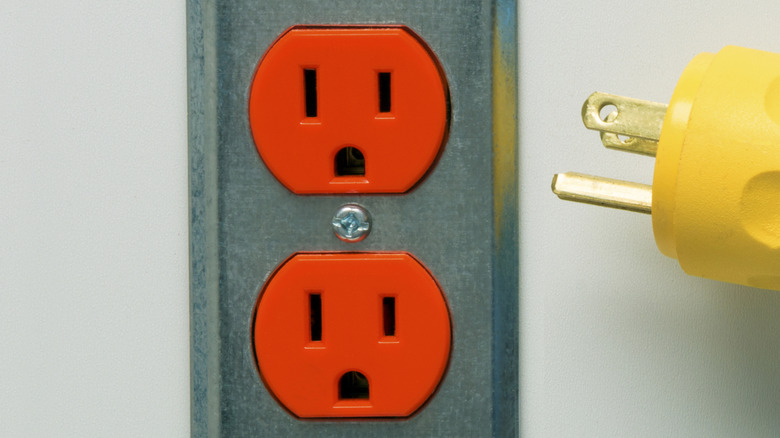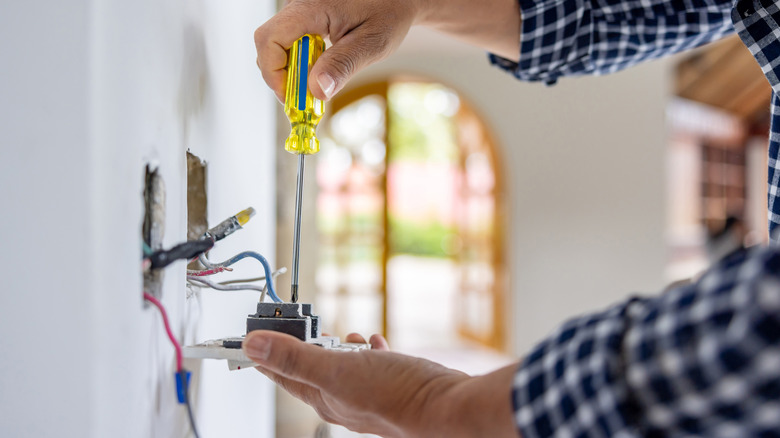Why Are Some Outlets Orange? Here's What It Means
Maybe you've come across an orange outlet while in someone's home or office, and it immediately caught your attention. This one stands out with a bold color that is unlike the typical white electrical outlets commonly found in every home. You might even think at first that it's a quirky design choice or a trendy addition to the room.
Orange outlets, however, are more than design choices. They are specifically designed to serve a functional purpose. These outlets provide a more stable and isolated power source, which helps to reduce voltage fluctuations that could potentially harm sensitive or high-end electronics. The unique coloring indicates that this outlet is meant for devices that require a cleaner and more consistent flow of electricity. But not every home or office needs these orange outlets even if they offer significant protection. Whether or not you should install one depends on the devices you use and whether they would benefit from the added power stability.
What an orange outlet actually does
An orange outlet indicates an isolated ground receptacle, which is usually means that it has separate wiring from the rest of the building. This then helps prevent electrical noise or tiny fluctuations that can interfere with sensitive equipment. This is important in places where steady power is crucial, such as hospitals, laboratories, and workspaces which mostly use high-tech devices that need to be stable. These orange outlets, however, are not only seen in professional settings anymore. They are also increasingly found in homes. An orange outlet is important for homeowners who may own high-end electronics or appliances with specific power needs. These include but are not limited to home theater systems, high-performance gaming setups, and home offices with multiple computers and networking devices.
If you have a family member who uses a medical device at home, such as a CPAP machine, an orange outlet will help power it without worrying about instability. This is especially helpful if your home has experienced frequent power fluctuations as these can cause sensitive electronics to suffer performance issues, crashes, or permanent damage. The isolated ground minimizes these risks by providing a stable power supply, ensuring the equipment runs smoothly without interruption.
Do you need an orange outlet for your home?
Take a moment to assess whether an orange outlet is truly needed in your home before diving into the installation since it's not enough to know how to replace an electrical outlet yourself. Deciding boils down to understanding the power needs of your devices and whether steady power is crucial for their performance. The extra protection might be worth it if you have high-end electronics or medical equipment, but you may not see much benefit if you're just plugging in basic appliances. You should also think about the cost and disruption of installing isolated ground outlets in your home's electrical system. It is definitely not a minor upgrade, and this is one of those electrical projects that you should not attempt unless you're a professional. An electrician will need to make sure the wiring is up to code and that the ground is properly isolated which could take time and money.
But if you're unsure whether you need an orange outlet, just get an appointment with a qualified electrician who can inspect your system. They can confirm whether you actually need an isolated ground, and can also explain if there are other options that might suit your home's needs. A professional electrician ultimately is your best bet to ensure everything is wired correctly and that your equipment stays protected for years to come.

